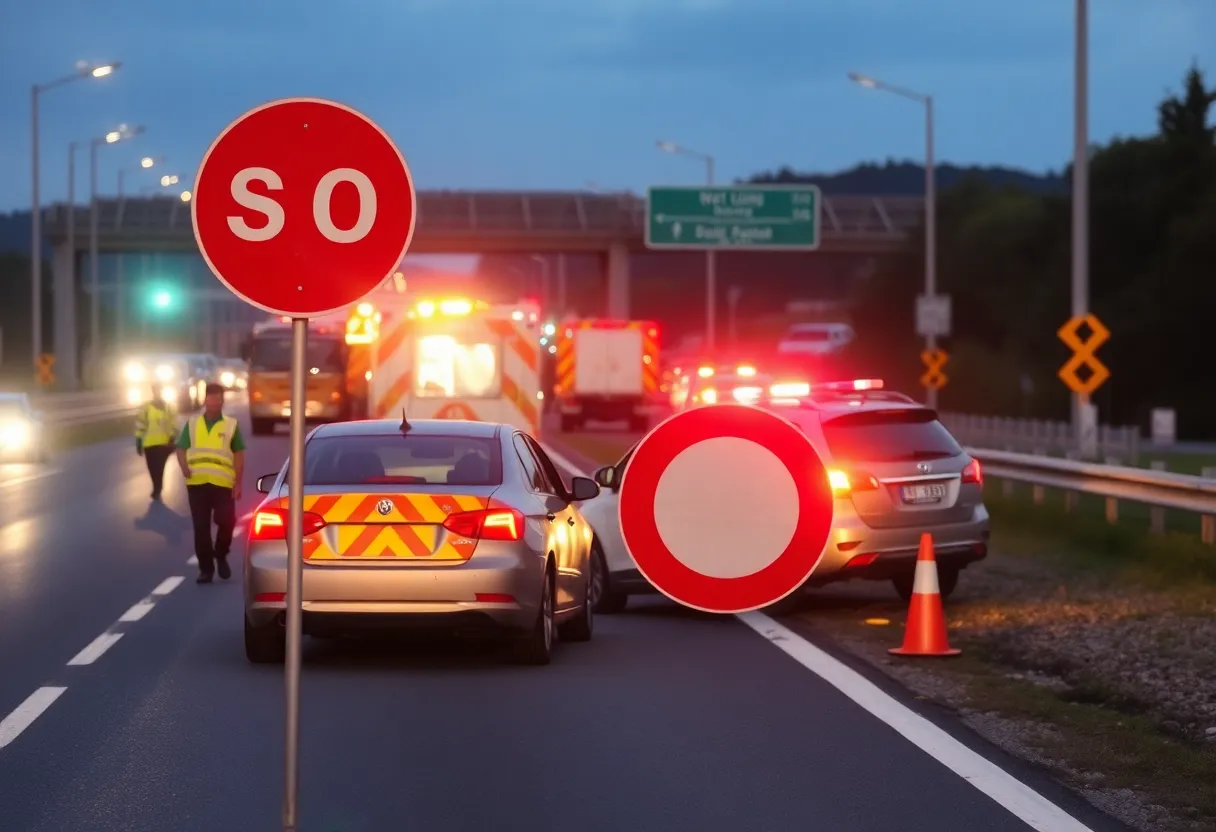News Summary
On March 19, 2025, the Michigan House passed a $3.1 billion road funding plan that aims to repair aging roads without increasing taxes on drivers. The proposal includes a tax policy shift and redirected corporate tax funds, but has faced opposition from Democrats who question its sustainability and impact on essential services. Governor Whitmer has suggested bipartisan efforts to enhance road funding, underscoring the urgency of collaborative solutions for Michigan’s infrastructure challenges.
Michigan House Passes Major Road Funding Plan Amidst Opposition
In a significant move on March 19, 2025, the Michigan House cheerfully embraced a bold nine-bill road funding package put forth by House Republicans. This ambitious plan seeks to generate an impressive $3.1 billion annually earmarked specifically for road repairs, all while promising not to increase taxes on drivers. The proposal comes as a direct response to the state’s aging infrastructure and aims to avoid the previous attempt by Governor Gretchen Whitmer, which proposed a hefty 45-cent increase on gas taxes back in 2019, a plan that ultimately failed to gain traction.
A Creative Funding Solution
The crux of the GOP’s plan rests on a clever shift in tax policy. By eliminating the current 6% sales tax on gasoline and replacing it with a 20-cent increase in the motor fuel tax—bringing it from 31 cents to a new total of 51 cents per gallon—they aim to ensure that every cent paid at the pump directly supports the much-needed road and bridge improvements. It’s estimated that this tax swap alone could bring in around $945 million to the cause.
Additionally, about $2.2 billion of the proposed funding is set to come from redirecting revenue garnered from the Corporate Income Tax, with an impressive 86% of this amount designated for local road agencies. That’s good news for communities looking for support for their roads. However, some eyebrows were raised when the proposal mentioned reallocating $755 million from the general fund, which is intended to compensate schools for any lost funding arising from the elimination of the sales tax. This raised red flags concerning possible cuts to essential services like education and public health.
A Divided Reaction
The reaction to the funding plan has been decidedly mixed. While the package did enjoy some bipartisan support in the House, with a handful of Democrats joining Republicans to pass various parts of the legislation, many Democratic legislators voiced strong criticism. They labeled the plan as unsustainable, accusing it of being nothing more than a “shell game” that utilizes funds in a way that raises concerns about maintaining essential services.
House Minority Leader Ranjeev Puri from Canton was vocal in pointing out that without a comprehensive plan that includes additional tax revenue options, the flow of funds might not serve its intended purpose effectively. The Senate, which is currently under Democratic control, still has to draft its own road funding proposal, adding to the uncertainty.
Impact on Business and Budget
Moreover, the GOP funding package also threatens existing business incentive programs by effectively eliminating around $500 million that had been earmarked for the Strategic Outreach and Attraction Reserve fund. This move has left some business groups uneasy about the potential repercussions on economic development in the state.
As for the state’s overall budget, many are left wondering how the redirection of funds might impact it. Will there be budget cuts to crucial services? Will schools, healthcare, and public safety feel the pinch? These questions are swirling as both lawmakers and residents consider the long-term implications of this new funding scheme.
A Call for Bipartisan Support
Despite the challenges, Governor Whitmer has put forth her own road funding plan that includes fresh suggestions for new revenue sources. There seems to be a growing consensus about the need for bipartisan collaboration to effectively address the ongoing funding challenges for Michigan’s roads.
In the midst of all this, key stakeholders, including representatives from the road industry and local governments, have expressed cautious optimism about the potential for achieving a more sustainable solution for road funding going forward. As everyone keeps an eye on developments regarding these proposals, one thing remains clear: fixing Michigan’s roads is going to require a team effort, and dialogue is more crucial than ever.
Deeper Dive: News & Info About This Topic
HERE Resources
Closure of Region 5 Head Start Office Shakes Up Early Childhood Programs
Billions in Clean Energy Projects Canceled Amid Uncertainty
University of Michigan Closes DEI Offices Amid Federal Pressure
Michigan Schools Face Funding Crisis as $42 Million Cut
Renovation of Hoffmaster State Park’s Visitor Center
Michigan State University Students Rally Against Trump Policies
Michigan Faces Food Crisis Amid USDA Shipment Cancellations
Major Construction Coming to Wayne County’s Interstate 94
University of Michigan Closes Diversity Offices Amid Controversy
Wayne County Sheriff’s Office Revises Immigration Policy
Additional Resources
- Detroit Free Press: GOP Road Funding Package
- Wikipedia: Road Infrastructure in the United States
- MLive: $3.1B Road Funding Package
- Google Search: Michigan road funding 2025
- Detroit News: Michigan House Approves Road Funding Plan
- Encyclopedia Britannica: Transportation
- Bridge Michigan: Michigan House Passes GOP Roads Package
- Mid Michigan Now: Michigan Road Funding Debate








